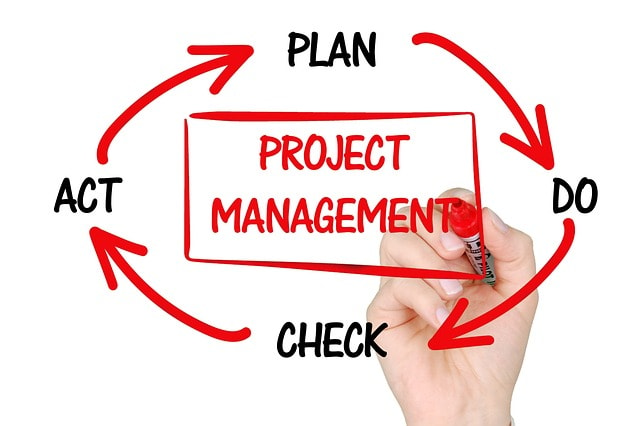Effective project management diploma is a cornerstone of organizational success across virtually all industries. From constructing skyscrapers to developing innovative software applications, the structured approach of project management provides the framework necessary to transform ambitious visions into tangible results. As businesses face increasing pressure to deliver high-quality products and services while maintaining strict budget and timeline constraints, the demand for skilled Project managers continues to grow exponentially. The field of project management has evolved significantly, embracing diverse methodologies from traditional waterfall approaches to adaptive Agile frameworks that respond to changing customer requirements. Central College, Mississauga prepares future project leaders with the comprehensive knowledge and practical skills needed to navigate these challenges, ensuring project success across the diverse spectrum of industries that rely on effective project management to drive innovation and maintain competitive advantage.
Project Management Fundamentals: Core Principles and Approaches
Defining Project Management
Project Management diploma encompasses the planning, organizing, and overseeing of resources to achieve specific project goals within defined constraints. The Project Management Institute defines it as “the application of knowledge, skills, tools, and techniques to project activities to meet project requirements.” This discipline touches virtually every industry, with its core principles remaining consistent even as application methods vary by context.
Key elements of project management include:
- Defining clear project objectives and deliverables
- Creating detailed project plans with realistic timelines
- Allocating project resources efficiently
- Managing project costs and budgets
- Implementing quality assurance measures
- Mitigating potential risks through risk management
- Facilitating communication among cross-functional teams
The project management process typically follows a project life cycle consisting of distinct phases: initiation stage, planning stage, execution, monitoring, and project closure. Each project phase builds upon the previous, creating a path toward successful completion of the entire project.
Common Project Management Methodologies
Different industries adopt various types of project management methodologies based on their specific needs:
Waterfall Methodology The waterfall approach represents a linear, sequential development cycle where each project phase must be completed before the next begins. This traditional methodology works well for projects with clearly defined requirements and minimal expected changes. Construction projects often utilize this structured approach because it emphasizes thorough project documentation and detailed planning before execution begins.
Agile Methodology Agile project management methodologies embrace an iterative approach, delivering incremental value through short development cycles called sprints. Software development teams particularly favor Agile frameworks as they accommodate changing requirements and emphasize customer satisfaction through early and continuous product delivery. Popular Agile methods include Scrum, Kanban, and Extreme Programming.
Lean Project Management Based on Lean principles originally developed in manufacturing, this methodology focuses on eliminating waste and optimizing efficiency. Lean project management emphasizes delivering maximum value to customers while minimizing unnecessary activities. Industries with repetitive tasks or production processes often implement Lean principles to streamline operations.
Critical Path Method The critical path methodology identifies the longest sequence of critical tasks and activities that determine the minimum timeframe for project completion. Construction industry and engineering projects frequently employ this method for complex projects with interdependent tasks and strict deadlines.
Critical Chain Project Management This approach focuses on resource constraints rather than just task dependencies. It builds upon the critical path method by adding resource buffering to manage project risks more effectively. Manufacturing and product development teams often utilize this methodology.
Hybrid Methodology Many organizations adopt a hybrid approach, combining elements from various methodologies to create a customized framework that suits their specific needs. For instance, a software development team might use Agile methods for development while employing more traditional methodologies for planning and documentation phases.

Project Management Across Different Industries
Technology and Software Development
In the rapidly evolving technology sector, project management plays a crucial role in ensuring timely delivery of software products that meet customer requirements. Agile frameworks dominate this industry, with cross-functional teams collaborating on incremental delivery:
- Development teams work in short sprints, typically 2-4 weeks
- Daily stand-up meetings facilitate communication
- Project managers often serve as Scrum Masters or Agile coaches
- Tools like Zoho Projects support remote teams collaboration
- Visual representation through burndown charts tracks project progress
- Google Drive enables seamless sharing of project documentation
- Quality assurance testing occurs throughout the development cycle
Companies like Google have pioneered innovative project management approaches that balance structure with flexibility, enabling rapid product development while maintaining high quality standards.
Construction Industry
Construction projects represent some of the most visible applications of project management principles, with massive budgets, extensive stakeholder networks, and complex scheduling requirements:
- The waterfall methodology provides the structured approach needed
- Detailed project schedules coordinate numerous contractors
- Critical path method identifies dependencies among construction activities
- Risk registers document and track potential risks throughout the project lifecycle
- Project stakeholders include investors, regulators, contractors, and community members
- Cost management systems track project costs against budgets
- Human resources allocation balances specialized skilled labor
Successful project management in construction prevents costly delays, ensures compliance with safety and quality standards, and maintains alignment with organizational goals.
Healthcare
Healthcare organizations increasingly rely on project management techniques to implement new technologies, improve business processes, and enhance patient care:
- Electronic health record implementations follow strict project management frameworks
- Hybrid methodology approaches balance regulatory requirements with flexibility
- Cross-functional teams include clinical staff, IT professionals, and administrators
- Project documentation must meet industry standard compliance requirements
- Quality standards focus on patient safety and care outcomes
- Program management coordinates multiple related healthcare initiatives
- Project management office (PMO) structures provide governance across larger projects
The healthcare industry’s unique challenges—including regulatory compliance, patient privacy concerns, and life-critical systems—make effective project management especially crucial.
Marketing and Creative Industries
Marketing agencies and creative businesses employ project management techniques that accommodate both structure and creativity:
- Agile approaches allow for client feedback throughout creative development
- Project deliverables often evolve based on market research and client input
- Agency projects require careful scope management to prevent scope creep
- Visual representation tools help communicate abstract concepts
- Google Calendar integration helps coordinate team member schedules
- Project managers balance creative freedom with delivery requirements
- Iterative approach allows for refinement of creative concepts
Successful project management in creative industries maintains the delicate balance between artistic vision and business objectives, ensuring creative projects meet both quality expectations and business requirements.
Manufacturing
Manufacturing operations benefit from project management disciplines in product development, process improvement, and facility expansions:
- Lean principles minimize waste throughout production processes
- Project teams often include engineers, operations staff, and quality specialists
- Critical chain project management optimizes resource allocation
- Visual management boards track project progress and highlight issues
- Project documentation includes detailed technical specifications
- Quality assurance processes verify adherence to manufacturing standards
- Incremental delivery approaches test improvements before full implementation
Manufacturing project management emphasizes efficiency, quality, and continuous improvement while managing the complexities of production environments.
Project Management Tools and Techniques
Modern project managers leverage various tools and techniques to enhance project performance:
Project Management Software
Digital tools have transformed how teams plan and execute projects:
- Project management software platforms centralize information
- Gantt charts provide visual representation of project schedules
- Google Calendar integration synchronizes team activities
- Automated reporting tracks project progress against milestones
- Resource allocation features optimize human resources utilization
- Risk management modules maintain and monitor risk registers
- Cloud-based systems facilitate collaboration among remote teams
From comprehensive enterprise solutions to specialized applications like Google Drive for document management, technology continues to enhance project efficiency and transparency.

Techniques for Effective Project Management
Beyond tools, successful project management relies on proven techniques:
- Work breakdown structures divide complex projects into manageable components
- Regular status meetings maintain alignment and address obstacles
- Earned value analysis measures project performance objectively
- Risk assessment frameworks identify and prioritize potential risks
- Change control processes manage modifications to project scope
- Stakeholder analysis ensures appropriate communication with all parties
- Retrospectives capture lessons learned for future projects
These techniques, when properly applied, significantly increase the likelihood of project success and contribute to organizational learning.
Why Choose Central College, Mississauga for Project Management Education
Central College, Mississauga offers comprehensive project management programs that prepare students for successful careers in this dynamic field. Our approach to project management education stands out for several key reasons:
Industry-Aligned Curriculum
Our program covers the full spectrum of project management knowledge areas and methodologies:
- All common methodologies from traditional waterfall to modern Agile frameworks
- Principles of Lean project management and process optimization
- Critical path and critical chain methodologies for complex project planning
- Risk management frameworks and mitigation strategies
- Cost management and budgeting techniques
- Quality assurance processes across different industries
Students gain practical experience with popular project management methodologies in various industry contexts, preparing them for diverse career opportunities.
Professional Certification Preparation
Our curriculum aligns with industry-recognized certifications:
- Project Management Professional (PMP) certification preparation
- Agile certification pathways
- Google Career Certificates recognized by employers
- Industry-specific certifications for specialized career paths
These credentials significantly enhance graduates’ marketability and demonstrate their commitment to professional standards.
Hands-On Learning Experience
Students don’t just learn theory—they apply project management principles through:
- Simulated project scenarios mirroring real-world challenges
- Case studies analyzing successful projects and failures
- Team projects developing actual project documentation
- Industry-standard project management tools training
- Project charters and plans development for various industry contexts
- Risk registers creation and management exercises
This practical approach ensures graduates can immediately contribute to project teams upon entering the workforce.
Expert Faculty and Industry Connections
Our instructors bring extensive real-world experience:
- Faculty with backgrounds spanning multiple industries
- Guest lectures from practicing program managers and project leaders
- Mentorship opportunities with experienced professionals
- Industry partnerships providing internship opportunities
- Networking events connecting students with potential employers
- Exposure to functional managers from various business sectors
These connections help students understand how project management principles apply across different organizational contexts and build valuable professional networks.
Comprehensive Skill Development
Beyond technical knowledge, our program develops the essential soft skills project managers need:
- Leadership training for managing project teams
- Communication techniques for stakeholder management
- Negotiation skills for resource allocation and conflict resolution
- Problem-solving approaches for overcoming project obstacles
- Adaptability for handling changing project requirements
- Strategic thinking for aligning project objectives with business goals
This holistic approach prepares graduates not just for project roles but for leadership positions guiding organizational strategy.

Building a Career in Project Management
The field of project management offers diverse career opportunities:
- Project coordinators supporting project planning and execution
- Project managers leading entire teams toward project goals
- Program managers overseeing portfolios of related projects
- Project management consultants advising organizations on methodologies
- Project management office directors establishing governance frameworks
- Industry specialists applying project management principles in specific contexts
With Central College’s comprehensive education, graduates are well-positioned to pursue these paths and advance throughout their careers, from entry-level positions to senior leadership roles.
Conclusion
Project management diploma serves as the essential bridge between strategic vision and successful execution across virtually every industry. As businesses face increasingly complex challenges in delivering products and services that meet customer expectations, the structured frameworks and methodologies of project management provide the necessary discipline to achieve successful outcomes consistently. From traditional approaches to innovative Agile teams and hybrid methodologies, project management continues to evolve while maintaining its core focus on delivering quality results within defined constraints. For those seeking to build a rewarding career in this dynamic field, Central College, Mississauga offers the comprehensive education, practical experience, and industry connections needed to excel as project management professionals capable of driving successful projects across diverse industries and organizational environments.
